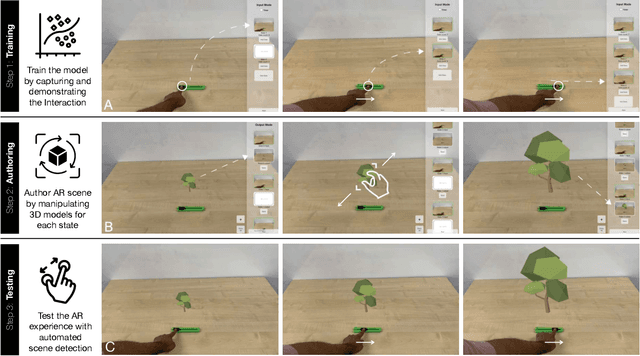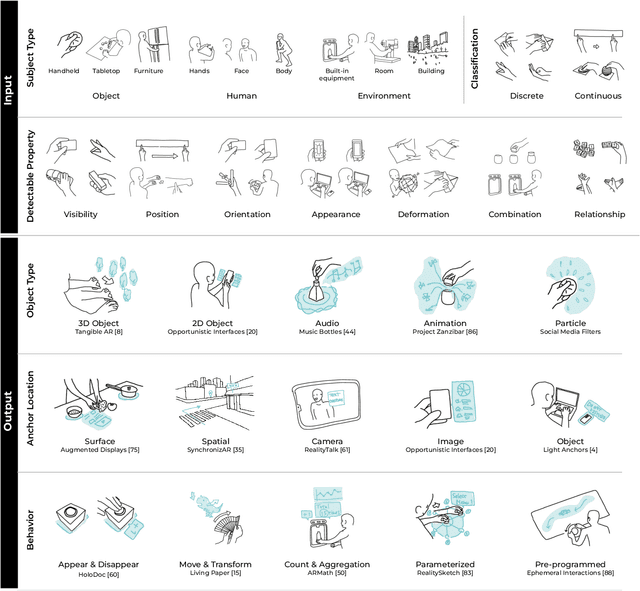Aman Parnami
Teachable Reality: Prototyping Tangible Augmented Reality with Everyday Objects by Leveraging Interactive Machine Teaching
Feb 21, 2023



Abstract:This paper introduces Teachable Reality, an augmented reality (AR) prototyping tool for creating interactive tangible AR applications with arbitrary everyday objects. Teachable Reality leverages vision-based interactive machine teaching (e.g., Teachable Machine), which captures real-world interactions for AR prototyping. It identifies the user-defined tangible and gestural interactions using an on-demand computer vision model. Based on this, the user can easily create functional AR prototypes without programming, enabled by a trigger-action authoring interface. Therefore, our approach allows the flexibility, customizability, and generalizability of tangible AR applications that can address the limitation of current marker-based approaches. We explore the design space and demonstrate various AR prototypes, which include tangible and deformable interfaces, context-aware assistants, and body-driven AR applications. The results of our user study and expert interviews confirm that our approach can lower the barrier to creating functional AR prototypes while also allowing flexible and general-purpose prototyping experiences.
Leveraging Context to Support Automated Food Recognition in Restaurants
Oct 07, 2015



Abstract:The pervasiveness of mobile cameras has resulted in a dramatic increase in food photos, which are pictures reflecting what people eat. In this paper, we study how taking pictures of what we eat in restaurants can be used for the purpose of automating food journaling. We propose to leverage the context of where the picture was taken, with additional information about the restaurant, available online, coupled with state-of-the-art computer vision techniques to recognize the food being consumed. To this end, we demonstrate image-based recognition of foods eaten in restaurants by training a classifier with images from restaurant's online menu databases. We evaluate the performance of our system in unconstrained, real-world settings with food images taken in 10 restaurants across 5 different types of food (American, Indian, Italian, Mexican and Thai).
 Add to Chrome
Add to Chrome Add to Firefox
Add to Firefox Add to Edge
Add to Edge